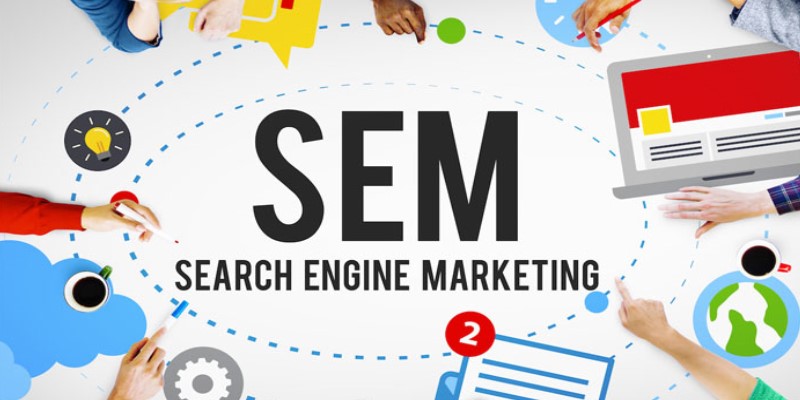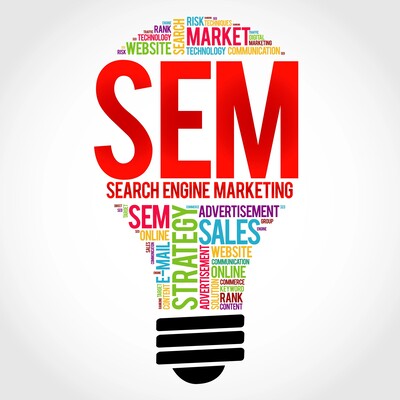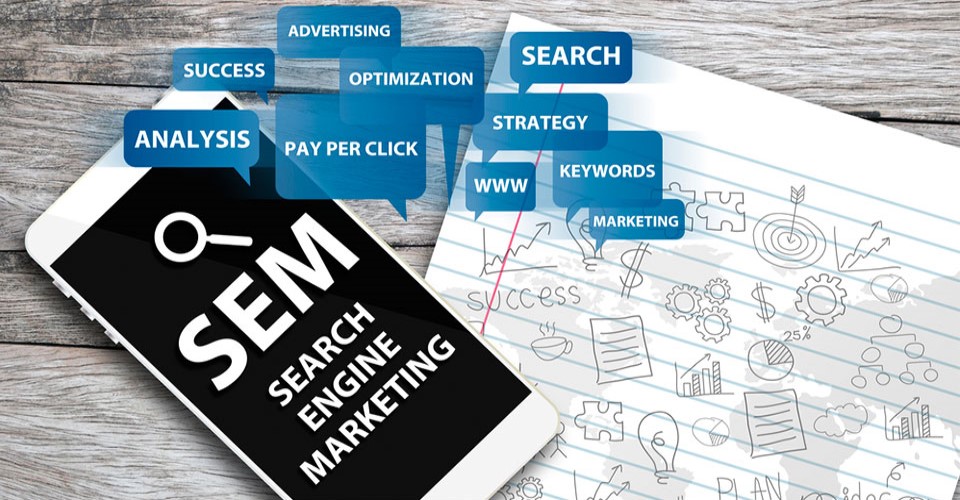Search Engine/ PPC Marketing
At our agency, we understand the power of Search Engine Marketing (SEM) in driving targeted traffic and maximizing your online presence. SEM is a vital digital marketing strategy that involves promoting your website through paid advertising on search engine result pages (SERPs).
It enables businesses to reach their potential customers precisely when they are actively searching for products or services. Let's explore the key points of SEM and how it can elevate your business to new heights.
- + Keyword Targeting
- + Cost-Effective
- + Immediate Results
- + Geo-Targeting
- + Ad Customization
- + Performance Tracking


Search Engine Marketing (SEM): Empowering Your Online Visibility and Growth

At our agency, we specialize in creating targeted and result-driven SEM campaigns that align with your business objectives. With our expertise in keyword research, ad copywriting, and campaign management, we'll ensure that your brand stands out in the competitive digital landscape and drives measurable success. Let's propel your business forward with the power of Search Engine Marketing!
SEM allows precise targeting of relevant keywords related to your products or
services. By bidding on these keywords, your ads appear on the top positions of
search results, increasing visibility and chances of clicks.
SEM offers a
cost-effective approach as you only pay when users click on your ads (PPC -
Pay-Per-Click). This ensures that your budget is spent on engaged and interested
prospects.
Unlike organic search engine optimization (SEO), SEM provides instant
results. Once your campaigns are set up and approved, your ads can start running
immediately, driving traffic to your website.

FAQs of Search Engine Marketing
Search Engine Marketing (SEM) is a digital marketing strategy that involves promoting websites and businesses through paid advertising on search engine result pages (SERPs). It helps businesses increase their online visibility and drive targeted traffic to their websites by bidding on relevant keywords.
While both SEM and SEO aim to improve a website's visibility on search engines, they use different approaches. SEM involves paid advertising, where businesses bid on keywords to display their ads on the top positions of search results. In contrast, SEO is an organic strategy that focuses on optimizing website content and structure to improve organic rankings on search engines.
Some key benefits of SEM include:
Instant visibility: Ads appear on SERPs as soon as campaigns are
set up and approved.
Targeted traffic: SEM allows businesses to target specific
keywords and demographics, reaching potential customers actively
searching for products or services.
Cost-effectiveness: Businesses only pay when users click on
their ads (PPC), ensuring budget allocation to engaged
prospects.
Measurable results: SEM platforms provide detailed analytics,
enabling businesses to track the performance of their ads and
measure ROI.
SEM campaigns are primarily associated with Google Ads, the advertising platform of Google. However, other search engines like Google Ads, Bing Ads and Yahoo! Gemini also offer similar advertising options.
PPC (Pay-Per-Click) and CPC (Cost-Per-Click) are often used interchangeably, but they have slightly different meanings. PPC refers to the pricing model where advertisers pay a fee each time a user clicks on their ad. CPC, on the other hand, is the actual cost an advertiser incurs for each click on their ad.











